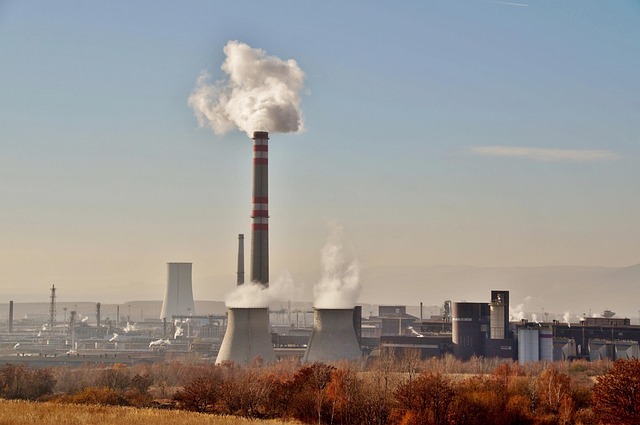Overview of Chemical Manufacturing
Chemicals play a vital role in various industries, from construction and healthcare to technology and transportation. The chemical industry involves the production, processing, and refinement of raw materials into essential compounds used in everyday applications. These chemicals are either derived from natural sources or synthesized in laboratories for specific industrial purposes.
Key Sectors That Rely on Chemicals
Manufacturing and Construction
Chemicals are essential in the production of materials such as plastics, adhesives, and coatings. In construction, chemical compounds are used in cement, insulation, and protective coatings to enhance durability and performance.
Healthcare and Pharmaceuticals
The pharmaceutical industry depends on chemicals to develop medicines, vaccines, and medical equipment. Chemical compounds are also used in disinfectants, sterilization agents, and diagnostic tools that contribute to public health and disease prevention.
Energy and Transportation
Chemicals are fundamental in fuel production, including gasoline, diesel, and alternative biofuels. Lubricants, coolants, and battery electrolytes are also crucial for efficient transportation and energy storage systems.
Electronics and Technology
Semiconductors, circuit boards, and batteries all rely on chemicals for efficient performance. Silicon, rare earth elements, and chemical etchants are essential for the production of smartphones, computers, and other digital devices.
Environmental and Safety Considerations
Impact of Chemicals on the Environment
While chemicals are indispensable to modern industries, their production and disposal can have significant environmental impacts. Pollution, hazardous waste, and greenhouse gas emissions are some of the challenges associated with chemical use. Sustainable practices, such as green chemistry and waste reduction, aim to minimize environmental harm.
Regulatory and Safety Standards
Governments and regulatory bodies implement strict guidelines to ensure the safe handling, storage, and disposal of chemicals. These regulations help prevent workplace hazards, protect public health, and promote sustainable industrial practices.
Future Trends in the Chemical Industry
Green Chemistry and Sustainable Solutions
The development of eco-friendly chemicals and biodegradable materials is gaining traction in response to environmental concerns. Industries are investing in renewable energy sources and recyclable materials to reduce their carbon footprint.
Innovations in Nanotechnology
Nanotechnology is revolutionizing the chemical industry by enabling precise material design at the molecular level. This advancement improves product efficiency, reduces waste, and enhances performance in fields such as medicine, energy, and electronics.
Alternative Energy and Battery Technologies
The demand for sustainable energy solutions is driving research into advanced chemical batteries and hydrogen fuel cells. These innovations aim to provide efficient energy storage and reduce dependence on fossil fuels.
The Role of Chemicals in Environmental Science
Chemicals and Pollution: Causes and Effects
Chemical pollutants, such as industrial waste, plastic residues, and toxic metals, can harm ecosystems and human health. Understanding these pollutants and their sources is crucial for developing effective mitigation strategies.
Green Chemistry and Sustainable Practices
Green chemistry focuses on designing processes that reduce or eliminate hazardous substances. Sustainable chemical practices promote the use of renewable raw materials, energy-efficient reactions, and non-toxic alternatives.
Chemical Waste Management and Recycling
Proper disposal and recycling of chemical waste are essential to prevent contamination of land, water, and air. Innovations in waste treatment, such as bioremediation and chemical neutralization, help minimize environmental impact.
The Future of Eco-Friendly Chemical Solutions
Advancements in biodegradable materials, alternative solvents, and carbon capture technologies are paving the way for a cleaner chemical industry. Researchers continue to explore ways to make industrial processes more environmentally friendly.
The Role of Chemicals in Modern Technology
The Chemical Foundations of Electronics
Electronics rely on specialized chemicals for the production of semiconductors, circuit boards, and display screens. Silicon, gallium arsenide, and various rare earth metals are key materials in microchip manufacturing.
Battery Chemistry and Energy Storage
Advanced batteries, such as lithium-ion and solid-state batteries, depend on precise chemical formulations to enhance energy efficiency, longevity, and safety. Battery chemistry plays a crucial role in renewable energy storage and electric vehicles.
Materials Science and Chemical Innovations
From lightweight composites to high-performance polymers, the development of advanced materials is heavily dependent on chemistry. Innovations in nanomaterials and superconductors are reshaping industries from aerospace to biomedical engineering.
Chemical Sensors and Analytical Devices
Many modern sensors and diagnostic devices use chemical reactions to detect substances in medical, environmental, and industrial applications. Gas sensors, biosensors, and spectroscopic instruments rely on precise chemical formulations for accurate readings.
The Role of Chemicals in Industrial Safety
Chemical Safety in the Workplace
Handling chemicals safely in industrial settings is crucial to preventing accidents, injuries, and long-term health effects. Proper training, protective equipment, and adherence to safety protocols ensure worker well-being.
Hazardous Materials and Risk Management
Certain chemicals pose significant hazards, such as flammability, toxicity, or reactivity. Companies must implement risk assessment procedures, containment strategies, and emergency response plans to mitigate potential dangers.
Chemical Storage and Transportation
Proper storage and transportation of chemicals are critical to preventing leaks, spills, and contamination. Regulatory guidelines dictate labeling, containment measures, and transport safety standards to protect workers and the environment.
Innovations in Chemical Safety Technologies
Advancements in safety technologies, such as real-time chemical monitoring, automated containment systems, and AI-driven hazard detection, are enhancing workplace safety and minimizing chemical-related risks.
Conclusion
Chemicals are a cornerstone of modern industry, driving innovation, economic growth, and technological advancement. While their applications are vast and essential, responsible management and sustainability efforts are crucial to minimizing their environmental impact. The future of the chemical industry lies in balancing industrial progress with environmental responsibility through cutting-edge research and green chemistry solutions.
City Chemical LLC is a top producer of chemicals like: Tantalum Ethoxide CAS: 6074-84-6, Tristearin CAS: 555-43-1, Silver Nitrate CAS: 7761-88-8, Lead Tungstate CAS: 7759-01-5, Sodium Glycerophospate CAS: 1555-56-2.
Visit City Chemical at www.citychemical.com.
